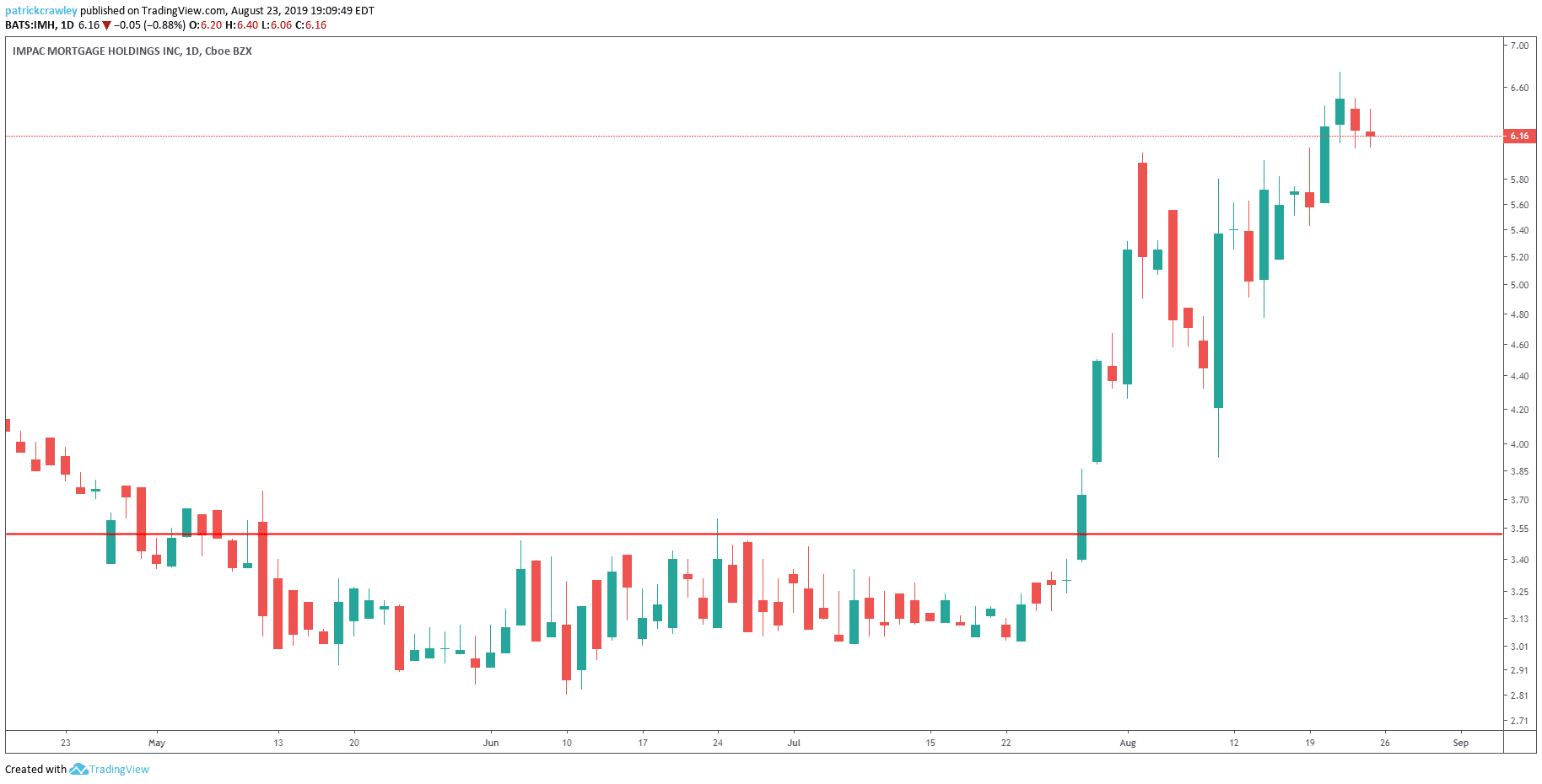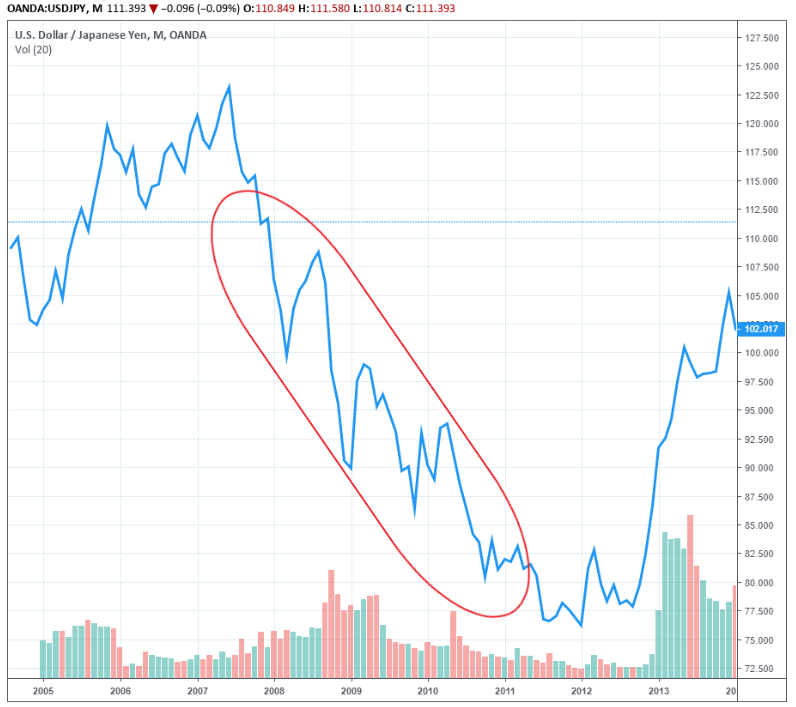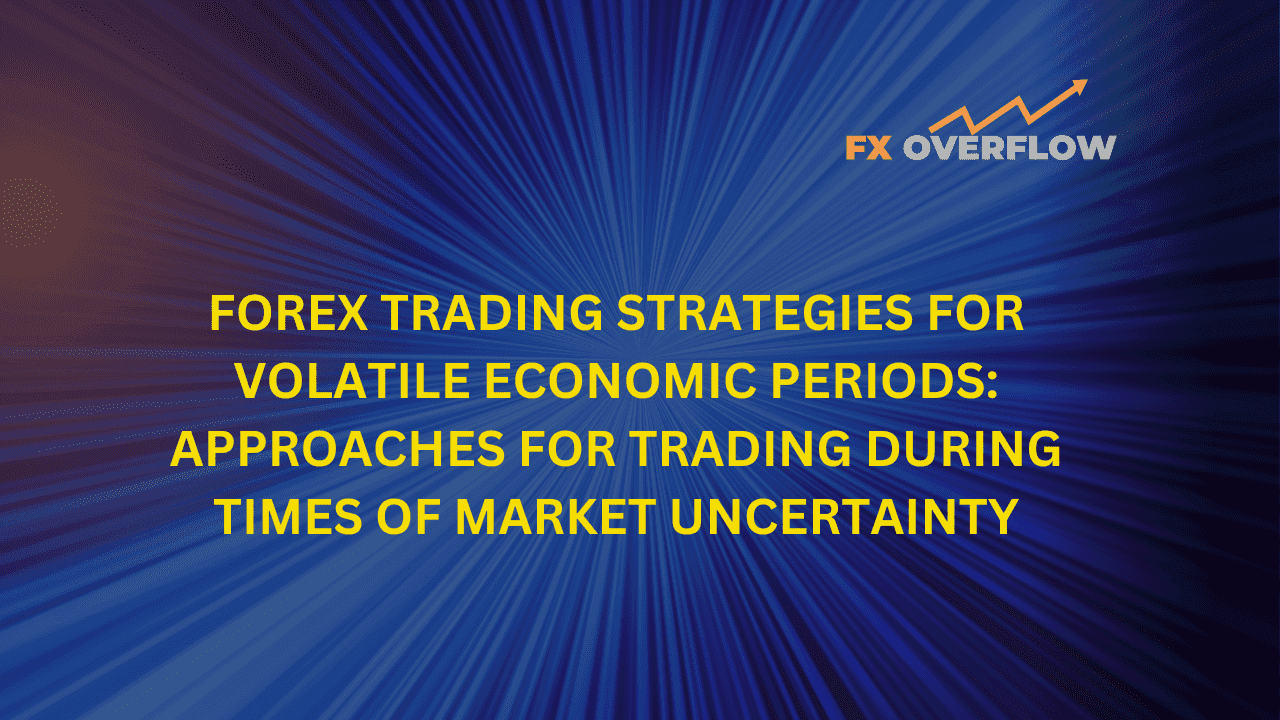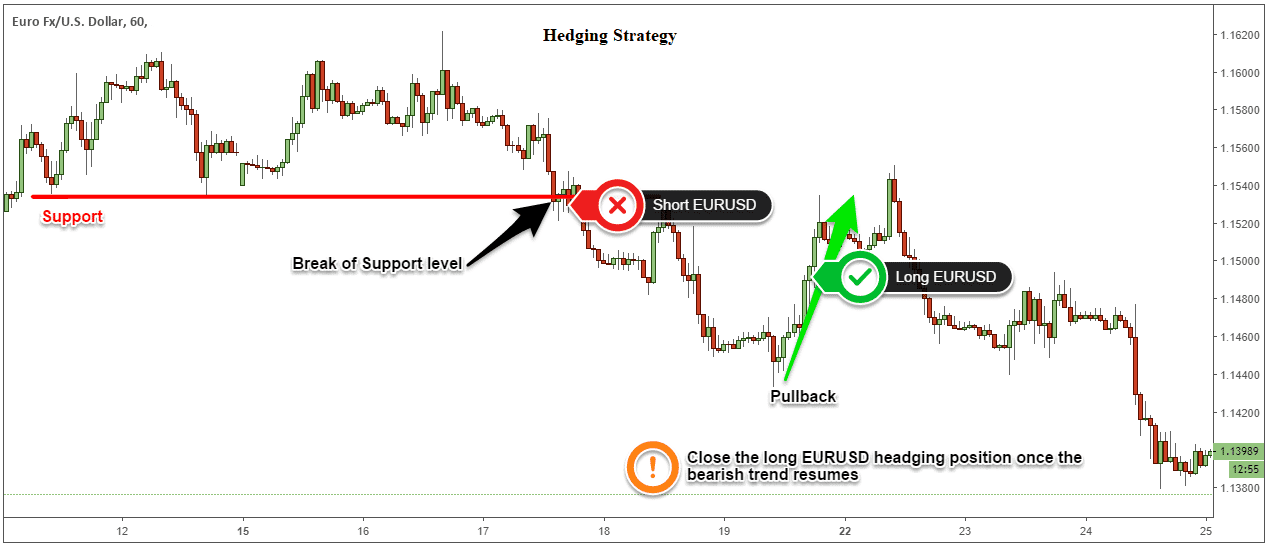Forex Trading Strategies for Volatile Economic Periods: Approaches for Trading During Times of Market Uncertainty
In the world of Forex trading, market volatility is a constant factor. Economic uncertainties can lead to rapid price fluctuations and significant challenges for traders. To successfully navigate these turbulent times and capitalize on market opportunities, it's crucial to adopt specific strategies. This article delves into various trading approaches tailored for volatile economic periods, providing you with actionable insights and expert advice.

Navigating market uncertainty demands a mix of experience, knowledge, and adaptable strategies. Here are some battle-tested approaches that can help you stay on top of your trading game even during turbulent times:
1. Breakout Trading: Riding the Storm
Incorporate breakout trading strategies to take advantage of sudden price movements. Identify key support and resistance levels, and execute trades when prices break through these levels. This approach allows you to capitalize on significant market shifts that often occur during volatile economic periods.

Sources from TradingView
2. Hedging: Minimizing Risk Exposure
Hedging involves opening multiple positions to offset potential losses. During uncertain times, hedging can act as a protective shield against unfavorable market movements. While it won't yield huge profits, it can help you maintain stability and weather market fluctuations.
3. Fundamental Analysis: Uncover Market Trends
Fundamental analysis involves studying economic indicators, news releases, and geopolitical events to predict market trends. In times of uncertainty, this approach can provide valuable insights into how economic factors might impact currency values.
4. Technical Analysis: The Power of Charts
Technical analysis relies on studying price charts, patterns, and indicators to predict future price movements. Even during volatile periods, market patterns tend to repeat themselves, allowing traders to make informed decisions based on historical data.
5. Diversification: Spreading Your Risk
Diversifying your trading portfolio involves trading multiple currency pairs or assets to spread risk. While not immune to market turbulence, diversification can help mitigate losses in case one trade goes south.
6. Carry Trade: Profiting from Interest Rates
The carry trade strategy involves capitalizing on the interest rate differential between two currencies. During economic uncertainty, central banks might adjust interest rates, creating opportunities for traders to earn from the rate differential.

7. News Trading: Reacting to Market News
Stay updated with economic news releases and geopolitical events. Economic data releases can trigger substantial market movements. By aligning your trades with these events, you can capture potential gains resulting from sudden market shifts.

8. Risk Management: The Key to Survival
In uncertain times, risk management becomes paramount. Set strict stop-loss and take-profit levels to limit potential losses and secure profits. This disciplined approach can help you preserve your capital and trade another day.
9. Patience and Discipline: The Trader's Virtues
During market uncertainty, impulsive decisions can lead to losses. Practice patience and discipline by adhering to your trading plan. Avoid chasing quick profits and prioritize long-term success.
10. Volatility-Adjusted Position Sizing
Adjust your position sizes based on market volatility. During uncertain periods, consider reducing your position size to account for higher risk. This strategy ensures that a single trade doesn't disproportionately impact your overall portfolio.
Frequently Asked Questions (FAQs)
Q: How can breakout trading help me during volatile economic periods?
A: Breakout trading involves capitalizing on sudden price movements. When markets are volatile, breakout strategies can help you catch significant price shifts and capitalize on potential trends.
Q: Is hedging a guaranteed way to avoid losses during uncertain times?
A: Hedging can help mitigate losses, but it's not foolproof. It involves balancing potential gains and losses across multiple positions, aiming for stability rather than massive profits.
Q: What's the difference between fundamental and technical analysis?
A: Fundamental analysis focuses on economic indicators and news events, while technical analysis relies on chart patterns and historical price data. Both methods offer insights into market behavior.
Q: How does diversification protect my portfolio during market turbulence?
A: Diversification involves trading multiple assets, reducing the impact of a single loss on your overall portfolio. While not immune to volatility, diversification can help manage risk.
Q: What role does risk management play in trading during uncertain times?
A: Risk management is crucial to limit potential losses. Setting stop-loss and take-profit levels ensures you exit trades at predefined points, protecting your capital.
Q: Why is patience important for traders during market uncertainty?
A: Patience prevents impulsive decisions driven by market emotions. During uncertain times, waiting for clear signals and adhering to your strategy can lead to more informed trades.
Footnote
Navigating Forex trading during volatile economic periods requires a blend of strategy, adaptability, and discipline. By incorporating breakout trading, hedging, fundamental and technical analysis, and other proven approaches, you can enhance your chances of success. Remember that risk management, patience, and staying informed are equally important. As you implement these strategies, you'll be better equipped to thrive even in the face of market uncertainty.













Discussion